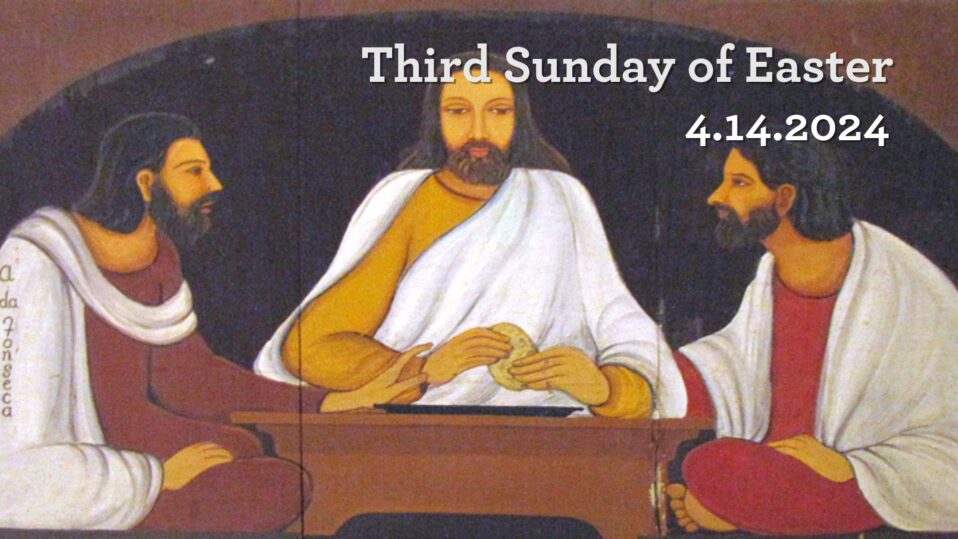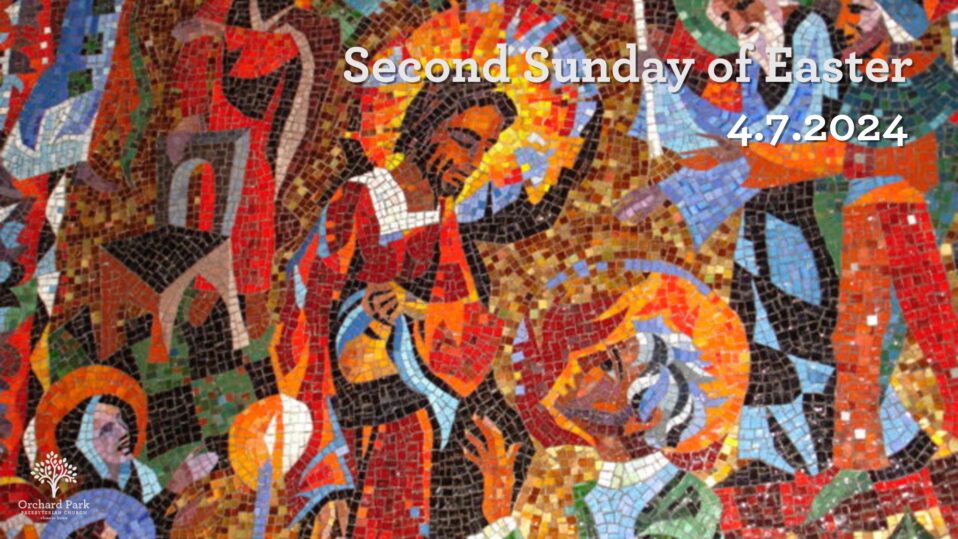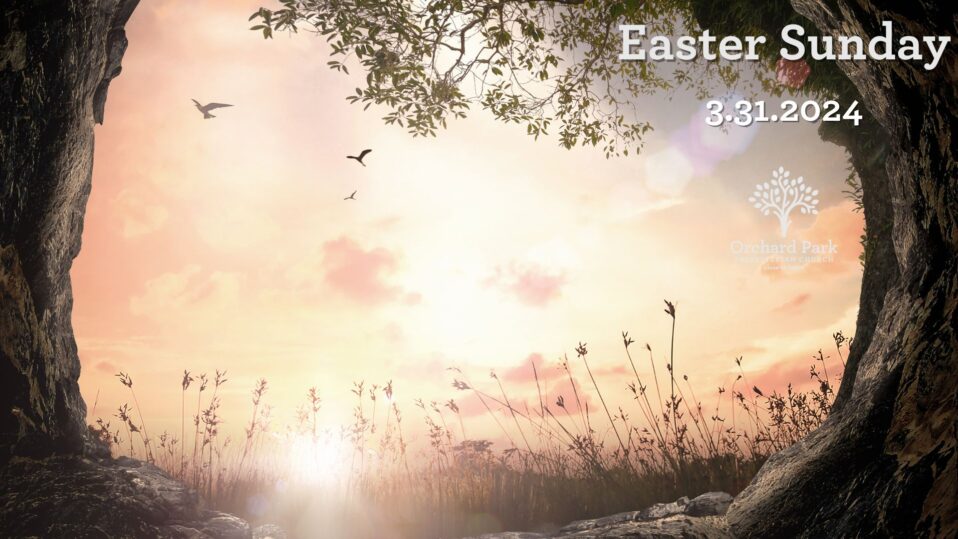Jesus once asked what feels to me like a heart-breaking question, “when the son of man come will there be faith on Earth?” You know, I think Jesus usually knows the answers to the questions he asks, but when he asks this question, I wonder if he’s talking to himself… pondering the question… wondering out loud, “when the son of man comes will there be faith on Earth?” I wonder if he wonders that there is a possibility that there won’t be. If there is in indeed faith on Earth when the son of man comes again, how will he know it? That’s the question for today.
Once, Jesus told this parable.
There was a corrupt judge a widow who needed justice. The widow begged and begged, so much that the judge got sick and tired of listening to her. Just to make her shut up, he gave her what she wanted. The end.
There are two characters, an unjust judge and widow. We know things about this story intuitively just by the characters. We know this is story about power dynamics. The judge has it and the widow does not. We know this is story about doing what is right and the judge’s lack of compassion to do so, and the widow’s persistence in getting justice to the point of wearing the judge out. – Literally the Greek says, the judge smacked in the face.
Here is what this story is not about.
This story is not making the argument that if you pray hard enough and are persistent in your praying that everything will work out in your favor.
This story is not about the responsibility society had to take care of widows, or the stain on the Judicial system of the day.
This story is about the pursuit of justice and the persistence of prayer. How will the son of Man know if there is faith on earth? If there is a pursuit of justice and a persistence in prayer.
The widow represents anyone who desires to live a life focused on God and desires justice. Jesus responds to this persistent faith saying, “I tell you, [God] will quickly grant justice to [those crying out]. And yet, when the Son of Man comes, will he find faith on earth?” (Verse 8).
How do followers not lose heart and maintain the faith in light of the fact that Jesus is not returning as soon as many would like? How are we to act if God’s justice is not delivered according to our own timetable? How do we go on in the face of injustice if God’s ultimate justice only arrives “suddenly” at Jesus’ return? In response to such questions, Luke maintains that we are to act like the widow. We are not to wait quietly for Jesus’ return and accept our fates in an oppression-ridden world. We are instead to resist injustice with the resolve and constancy of the widow. As Jesus explains elsewhere, prayer is not a passive activity but one that actively seeks God and pursues God’s will.5 Like the widow, we are to persevere in the faith, crying out to God, day and night. This is what persistent prayer looks like.
How will the son of Man know if there is faith on earth? If there is a pursuit of justice and a persistence in prayer.
The coming of Christ on earth and promise of justice are inseparable. And for those of us who practice the Christian faith we are called to never stop praying, striving, hoping and believing in justice. We are called to be persistent in faith. to believe in the manifestation of the kingdom of God on earth. Even when, especially when we see more corruption and hard hearts than compassion and justice. – Our job is to keep striving, keep praying for justice, and not shutting up.
I had a parishioner at my first congregation who prayed for justice and walked his prayer every day. He felt passionately about the injustices and the need for peace between Palestinians and Israelis. He would come to every session meeting ask that the session speak out for peace and justice.
Did he make the session meetings uncomfortable? Yes. Did everyone agree with him? No. Did he sit down and stop asking for justice? Not once. Did he pray every day for peace in Gaza? Without a doubt. Sometimes God puts an injustice on our hearts so strongly that we cannot stop praying and talking until justice rolls down like every flowing stream. This is how we are supposed to pray. Jesus is talking about is wonder-widow-type prayer, squeaky-wheel prayer, thy-kingdom-come, thy-will-be-done-on-earth prayer, prayer that won’t accept anything less than what’s right, upper-cut prayer that gives sin and meanness and inhumanity and unfairness a black eye.
Jesus is talking about a persistent kind of prayer that is fervent. Mother Teresa of Calcutta went to visit prominent Washington lawyer and sports owner Edward Bennett Williams. Mother Teresa was raising money for an AIDS hospice, and the attorney Williams was in charge of a small charitable foundation that she hoped would help. Williams, though, was reluctant: he thought, “I really don’t want to make a contribution, but I’ve got this Catholic saint coming to see me, so what do I do?” He decided to hear Mother Teresa out and then politely tell her “No.” Soon enough little Mother Teresa was sitting across the attorney’s big mahogany table, a little widow-looking woman in a white sari looking up at the man in gold cufflinks and a designer suit. Mother Teresa talked about the work of the Hospice, and then made her request for help. Williams listened patiently and then said, “Mother, we are very touched by your appeal, and your wonderful work, but unfortunately, the answer has to be “No”.” Mother Teresa said, “Let us pray.” They bowed their heads and she prayed. But Long says that after the prayer, Mother Teresa made the same exact pitch for the hospice, word for word, as she had before. Williams again politely said no. Mother Teresa said, “Let us pray.” Edward Bennett Williams, exasperated, looked up at the ceiling and said, “All right, all right, all right, I’ll get my checkbook.”
“Do justice. Let us pray. Do justice. Let us pray. Do justice, let us pray.” And the widow wins. For Mother Teresa, and for her Lord, prayer is not the opiate of the people, it’s caffeine for the world-changers.
The theologian Karl Barth once wrote that when we clasp our hands in prayer, we are participating in an uprising against the injustice and disorder of the world.
In our daily prayers do we include prayer for a different future? Do we pray for Gods will to be done, and do we mean it… recognizing that Gods will is greater than our desires?
Jesus knows all too well that we live in a fallen, widow-making world that is often an unjust judge, that often seems to neither fear God or respect people, a world in which life is often unfair. It is a world in which there is a mysterious delay between our prayers for justice being heard, and our prayers for justice being answered: we live in that time between the cry in the night and the parent rushing into the nursery. For some, that delay may last until the world to come. That agonizing delay is enough to make us lose heart, perhaps to make us give up on prayer altogether. How long, O LORD? And that’s why at the end of this parable Jesus, turns that question of “How Long” back around to us.
He asks this poignant question that is left hanging in the air: “When the Son of Man comes, will he find faith on earth?” Will there be anyone audacious enough to simply ask for a better world, to believe that our prayers matter?
This week parents in Florida and Connecticut sat in courtrooms seeking justice for their murdered children. The pain those parents and families have endured is beyond comprehension, we can pray for them. We can pray for justice. We pray thy will be done.
This week thousands of women and girls and young people continued to march for freedom and equal rights in Iran after the death of two young women. We can pray for justice. We can pray thy will be done.
This week missiles hit civilian locations in Kieve taking out playgrounds and shopping centers. We can pray for justice. We can pray thy will be done.
Jesus asks the question, when the son of man comes, will he find faith on earth? And the answer is, only if they are persistent in prayer – not for themselves, not for people they love, but for justice.
Grant us, Lord God, a vision of your world as your love would have it:
a world where the weak are protected, and none go hungry or poor;
a world where the riches of creation are shared, and everyone can enjoy them;
a world where different races and cultures live in harmony and mutual respect;
a world where peace is built with justice, and justice is guided by love.
Give us the inspiration and courage to build it, through Jesus Christ our Lord.
Amen.
Rev. Dr. Shelly Wood



